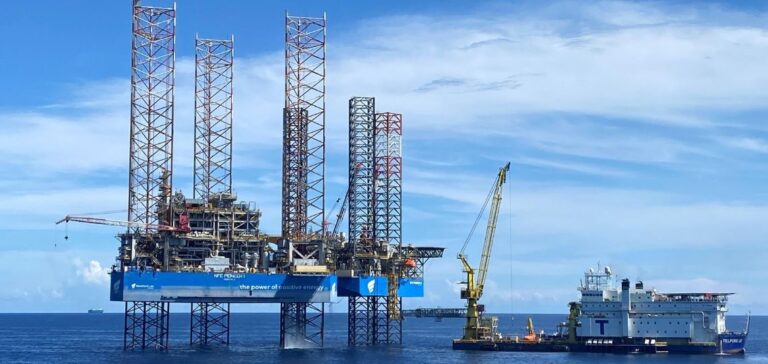New Fortress Energy secures a $700 million loan to build its second floating liquefied natural gas (FLNG) unit. Following the success of its first FLNG unit, now operational, the company is preparing to develop FLNG 2 in partnership with Mexico’s Comisión Federal de Electricidad (CFE).
The new unit will be located in Altamira, using CFE’s existing onshore infrastructure.
The financing will enable FLNG 2 to be built using the modular technology used for FLNG 1.
Commissioning of the new unit is scheduled for the first half of 2026.
At the same time, FLNG 1 is ready to deliver its first cargo in August.
Strategic partnership with Comisión Federal de Electricidad
The FLNG 2 project benefits from collaboration with the Comisión Federal de Electricidad, using the terminal infrastructure at Altamira.
The aim of this cooperation is to reduce costs and construction times for the new FLNG unit.
Modular technology ensures rapid and efficient construction, optimizing available resources.
This partnership is part of New Fortress Energy ‘s strategy to strengthen its position in the liquefied natural gas (LNG) sector. With this expansion, the company is responding to the growing demand for clean energy solutions while supporting energy transition objectives.
Impact and outlook
New Fortress Energy plays an important role in the global energy sector thanks to its FLNG infrastructure.
LNG production units, combined with a fleet of ships and logistics assets, enable the company to provide integrated, efficient energy solutions.
This expansion contributes to global energy security, economic growth and environmental stewardship.
The investment in FLNG 2 marks a significant step forward for the company, underlining its commitment to innovation and sustainability.
Current projects aim not only to improve operational efficiency but also to transform local communities by providing reliable, clean energy.
The partnership with CFE and the secured financing for FLNG 2 demonstrate New Fortress Energy’s ability to manage large-scale projects and strengthen its position in a rapidly evolving sector.
These developments reflect the solidity of the company’s expansion strategy and its key role in the global energy transition.






















